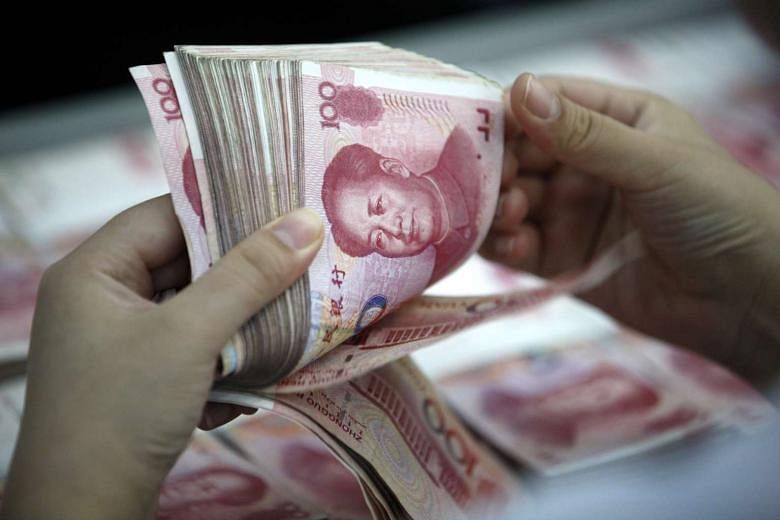BEIJING • China's financial markets are expected to remain stable and the renminbi is not on course for a long-term devaluation, while fiscal spending will grow faster than expected this year, the country's top financial officials told the Group of 20 (G-20).
Finance Minister Lou Jiwei said central government spending will rise 10 per cent this year, more than the 7 per cent growth budgeted at the start of the year, said a statement issued late on Saturday on the People's Bank of China website. China will raise dividend payments from designated state-owned enterprises to make up for shortfalls.
China is headed for its slowest economic expansion in 25 years this year, and mainland markets have slumped 40 per cent since mid-June, sending global financial markets skittering.
Ailing Chinese shares dragged down Hong Kong stocks to their lowest close in two years last Wednesday. China's financial markets were closed last Thursday and Friday to mark the 70th anniversary of the end of World War II.
China's overall gross domestic product growth will remain about 7 per cent, as predicted earlier, and the new economic normal may last for four to five years, Mr Lou said. The government will not care particularly about quarterly economic fluctuations and maintain steady macro-economic policy, he added.
China can no longer rely on policy supports to achieve 9 per cent to 10 per cent growth, as it may take years to digest excess industrial capacity and inventories, he said.
It will go through "labour pains" in the next five years as it aims to complete main structural reforms by 2020, Mr Lou added. But growth quality is improving, with seven million new jobs in the first half of the year, consumption beating investment in contributing to economic growth and balance of payments becoming more even, he said.
Separately, central bank governor Zhou Xiaochuan said China's stock market rout that erased US$5 trillion (S$7.1 trillion) in value is close to ending. With the yuan's exchange rate versus the dollar close to stabilising and a stock market correction almost done, China's financial markets are expected to be more stable, he said in a statement on the bank's website after the G-20 meeting.
China's shock devaluation of the yuan last month rattled world markets and sparked exchange-rate declines in emerging economies.
The Chinese government's intervention has prevented a free-fall in the market and systemic risk, Mr Zhou said. The leverage ratio has dropped and the impact on the real economy is limited, he said.
Mr Zhou said China's economic fundamentals are substantially unchanged, and there is no basis for long-term yuan depreciation. The country's determination to deepen market reforms has not changed, he said.
REUTERS, BLOOMBERG

